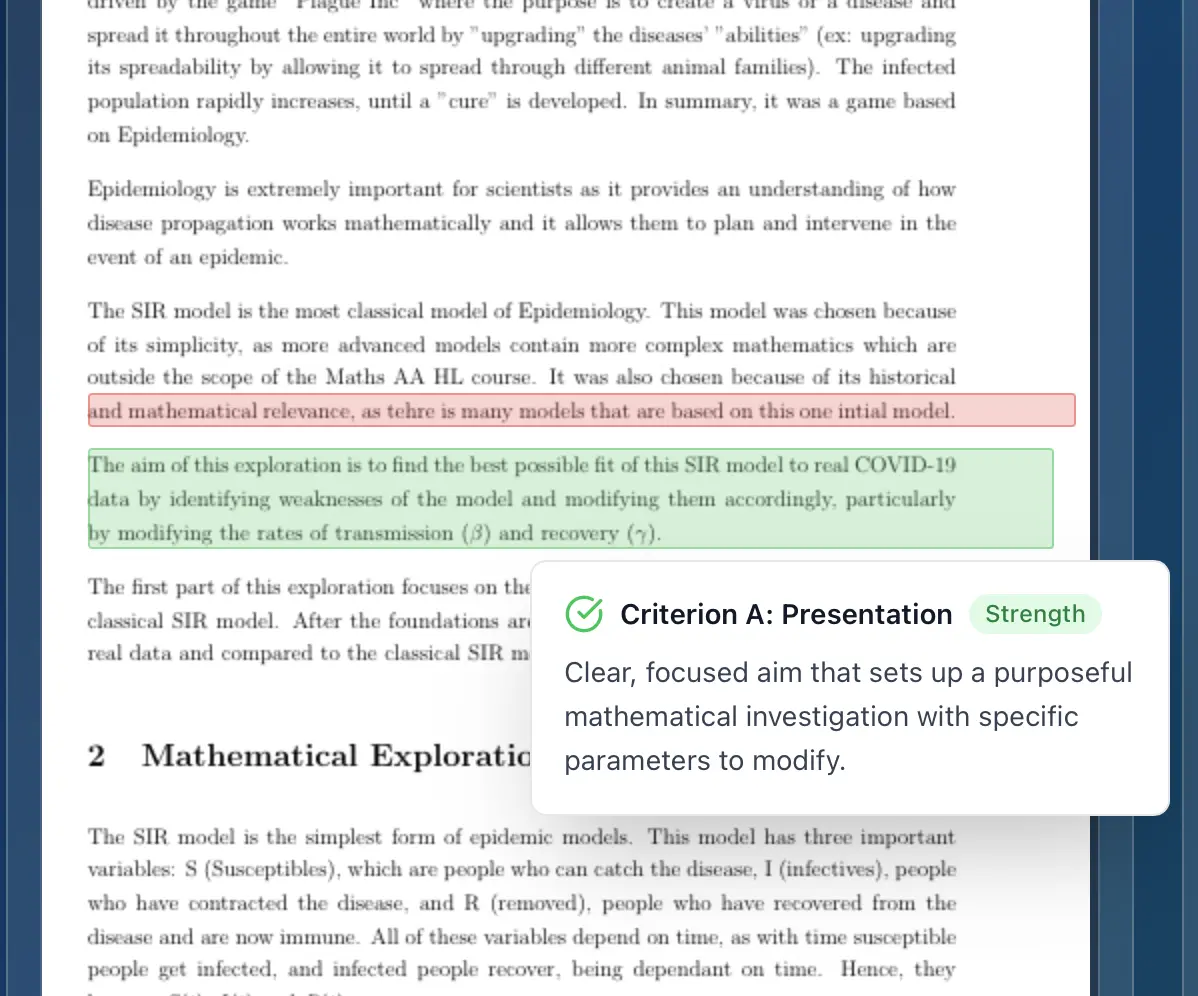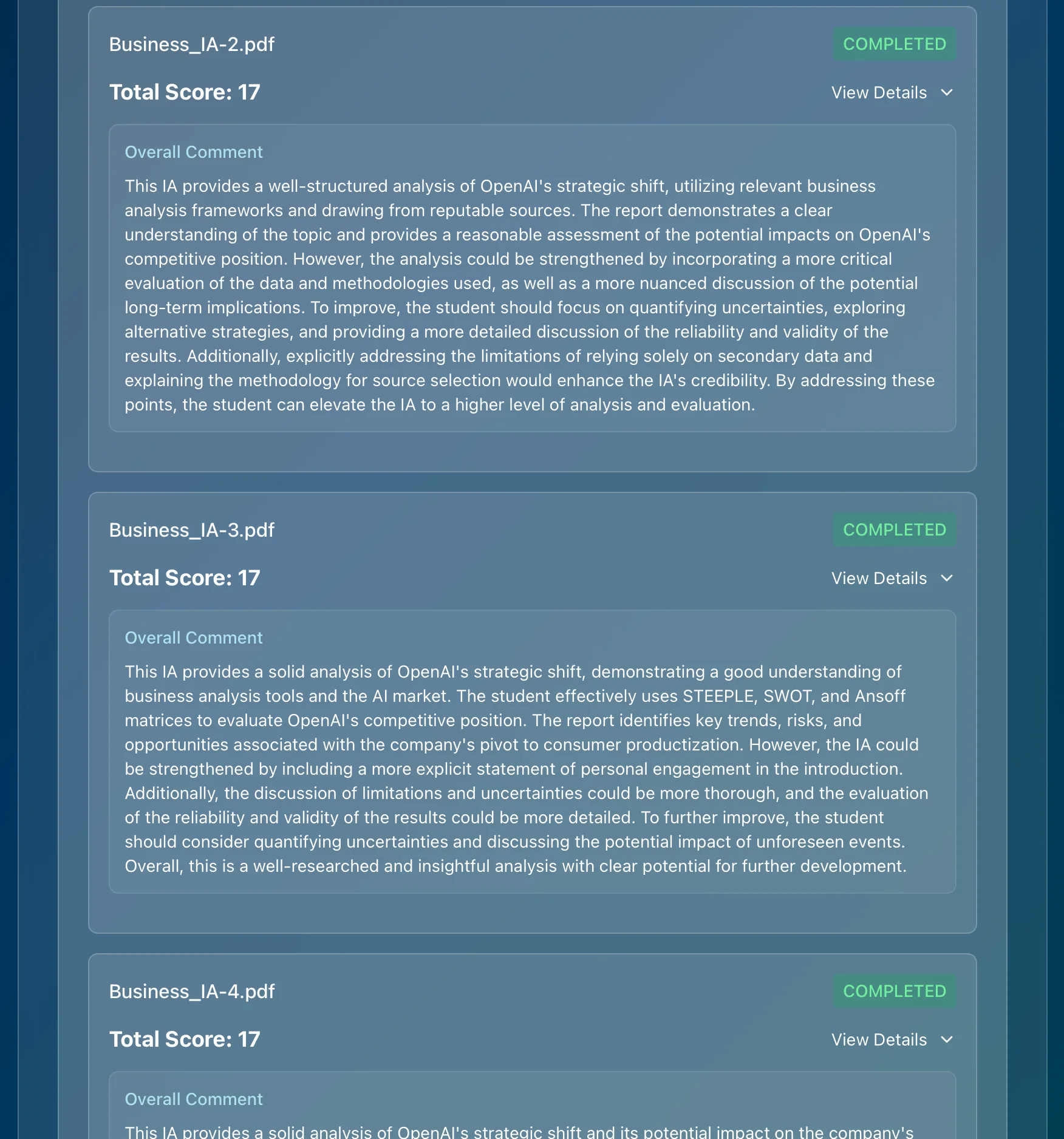IB Chemistry EE: From Lab Work to Final Paper
Are you tackling the IB Chemistry Extended Essay (EE) and feeling overwhelmed? You're not alone! This comprehensive guide breaks down the entire process, from initial lab experiments to crafting a compelling final paper. We'll cover everything you need to know to choose a strong topic, conduct effective research, analyze your data, and write a well-structured and insightful essay that meets the rigorous IB standards. Get ready to transform your lab work into a top-scoring Chemistry EE!
Introduction (Answer the Query Immediately)
The IB Chemistry Extended Essay (EE) is a challenging but rewarding opportunity to delve deep into a topic that fascinates you. This independent research project requires you to conduct original research, analyze data, and present your findings in a well-structured and academically rigorous essay. This guide provides a step-by-step roadmap to navigate the entire process, from selecting a research question and designing your experiment to analyzing your results and crafting a compelling final paper. We'll equip you with the knowledge and strategies to excel in your Chemistry EE, covering everything from understanding the IB rubric to leveraging tools like AI grading assistants to refine your work. Whether you're aiming for a perfect score or simply striving to improve your understanding of chemistry, this guide will help you succeed.
Struggling with IB Assessments?
Get instant, detailed feedback on your work with AI that understands IB criteria.

Choosing Your Chemistry EE Topic: Sparking Curiosity and Feasibility
Selecting the right topic is crucial for a successful IB Chemistry EE. It should be something you're genuinely interested in, but also feasible to investigate within the time and resource constraints.
- Start with your interests: What areas of chemistry fascinate you? Think about topics covered in your IB Chemistry course, current scientific advancements, or real-world problems that chemistry can help solve.
- Brainstorm and narrow down: Generate a list of potential topics and then evaluate each one based on its feasibility. Consider the availability of resources, equipment, and data.
- Formulate a focused research question: A strong research question is specific, measurable, achievable, relevant, and time-bound (SMART). Avoid overly broad questions that are difficult to answer within the scope of an EE.
Example:
- Too broad: "How does temperature affect reaction rates?"
- Improved: "How does increasing the temperature from 25°C to 50°C affect the rate of decomposition of hydrogen peroxide catalyzed by potassium iodide?"
Tips for Choosing a Good Topic:
- Review past IB Chemistry EE examples: While you shouldn't copy, looking at successful EEs can give you ideas and help you understand the scope and depth expected.
- Consult with your teacher: Your teacher can provide valuable guidance on topic selection, research methods, and potential challenges.
- Consider practical limitations: Can you realistically conduct the experiment in your school lab? Do you have access to the necessary chemicals and equipment?
Designing Your Experiment: A Solid Foundation for Success
A well-designed experiment is the cornerstone of a strong Chemistry EE. This section focuses on the methodology and experimental design.
- Define your variables: Clearly identify your independent, dependent, and controlled variables.
- Develop a detailed procedure: Write a step-by-step procedure that is clear, concise, and reproducible. Include specific measurements, quantities, and time intervals.
- Control for confounding variables: Identify potential sources of error and implement strategies to minimize their impact.
- Ensure sufficient data collection: Collect enough data to allow for meaningful statistical analysis and to draw valid conclusions.
Example:
If you're investigating the effect of pH on enzyme activity, you would:
- Independent variable: pH (e.g., pH 4, 5, 6, 7, 8)
- Dependent variable: Enzyme activity (e.g., rate of reaction)
- Controlled variables: Temperature, enzyme concentration, substrate concentration
Tips for Experimental Design:
- Conduct preliminary experiments: Before starting your main experiment, run a few trials to optimize your procedure and identify potential problems.
- Use appropriate controls: Include control groups to provide a baseline for comparison.
- Replicate your measurements: Repeat each measurement multiple times to improve the accuracy and reliability of your data.
Data Collection and Analysis: Unveiling the Story in Your Results
Once you've collected your data, it's time to analyze it and extract meaningful insights.
- Organize your data: Create tables and graphs to present your data in a clear and organized manner.
- Perform statistical analysis: Use appropriate statistical tests (e.g., t-tests, ANOVA) to determine if your results are statistically significant.
- Interpret your results: Explain what your data means in the context of your research question. Do your results support or refute your hypothesis?
Example:
If you're investigating the effect of temperature on reaction rate, you might:
- Create a graph: Plot reaction rate (dependent variable) against temperature (independent variable).
- Calculate the activation energy: Use the Arrhenius equation to determine the activation energy of the reaction.
- Discuss the implications: Explain how your results relate to collision theory and the effect of temperature on molecular kinetic energy.
Tips for Data Analysis:
- Use appropriate software: Spreadsheet programs like Excel or statistical software packages like SPSS can help you analyze your data.
- Be critical of your data: Identify any outliers or anomalies and consider their potential impact on your results.
- Acknowledge limitations: Be honest about the limitations of your data and analysis.
Writing Your Chemistry EE: Structuring Your Argument
The final step is to write a clear, concise, and well-structured essay that presents your research findings in a compelling manner.
- Introduction: Introduce your topic, state your research question, and provide background information.
- Methodology: Describe your experimental design, procedure, and data collection methods.
- Results: Present your data in tables and graphs, and summarize your key findings.
- Discussion: Interpret your results, discuss their implications, and compare them to existing literature.
- Conclusion: Summarize your main findings, state whether your hypothesis was supported or refuted, and suggest directions for future research.
- References: Cite all sources using a consistent referencing style (e.g., MLA, APA).
Tips for Writing Your EE:
- Use clear and concise language: Avoid jargon and technical terms that are not essential.
- Support your arguments with evidence: Back up your claims with data from your experiment and information from credible sources.
- Proofread carefully: Check your essay for spelling, grammar, and punctuation errors.
Pro Tip: Get AI-Powered Grading
Stop second-guessing your grades. Get instant feedback aligned with official IB rubrics.

Common Challenges/Mistakes Section
Students often face similar challenges when writing their IB Chemistry EE. Here are some common pitfalls and how to avoid them:
- Poorly defined research question: A vague or overly broad research question makes it difficult to focus your research and draw meaningful conclusions. Solution: Refine your research question until it is specific, measurable, achievable, relevant, and time-bound.
- Inadequate experimental design: A poorly designed experiment can lead to unreliable data and invalid conclusions. Solution: Carefully plan your experiment, control for confounding variables, and collect sufficient data.
- Insufficient data analysis: Failing to analyze your data properly can prevent you from identifying key trends and patterns. Solution: Use appropriate statistical tests and interpret your results in the context of your research question.
- Lack of critical thinking: Simply presenting your data without analyzing and interpreting it demonstrates a lack of critical thinking. Solution: Discuss the implications of your results, compare them to existing literature, and acknowledge the limitations of your research.
- Poor presentation: A poorly written and formatted essay can detract from the quality of your research. Solution: Use clear and concise language, structure your essay logically, and proofread carefully.
Advanced Tips/Strategies Section
Ready to take your Chemistry EE to the next level? Here are some advanced tips and strategies:
- Go beyond the textbook: Explore advanced chemistry concepts and theories that are relevant to your research question.
- Consult with experts: Seek guidance from university professors or researchers in your field.
- Use sophisticated analytical techniques: If possible, use advanced analytical techniques such as spectroscopy or chromatography to obtain more detailed data.
- Develop a novel approach: Try to approach your research question from a unique perspective or develop a novel experimental design.
- Demonstrate intellectual curiosity: Show a genuine interest in your topic and a willingness to explore new ideas.
Technology and Modern Assessment Section
Technology is revolutionizing the way we approach education, and the IB is no exception. AI-powered tools are becoming increasingly valuable for both students and teachers in the assessment process.
For students, AI can provide personalized feedback on their work, helping them identify areas for improvement and track their progress. For teachers, AI can automate the grading process, saving them time and ensuring consistency in assessment.
Marksy is a leading AI grading assistant specifically designed for the International Baccalaureate (IB). It provides instant, accurate, and detailed feedback on student work based on official IB rubrics. This means that students receive feedback that is aligned with the IB's expectations, helping them understand exactly how to improve their work and achieve higher scores. Teachers can also use Marksy to streamline their grading workflow, freeing up time to focus on other important tasks. Marksy uses official IB criteria to ensure accuracy and fairness, providing rubric-aligned scoring, detailed criterion-by-criterion feedback, and suggestions for improvement. This not only saves educators valuable time but also maintains the highest standards of assessment quality.
Conclusion with Clear Next Steps
The IB Chemistry Extended Essay is a significant undertaking, but with careful planning, diligent research, and effective writing, you can achieve a high score and gain valuable research skills. Remember to choose a topic that interests you, design a well-controlled experiment, analyze your data thoroughly, and present your findings in a clear and concise manner. Don't be afraid to seek help from your teacher or other experts, and take advantage of the resources available to you, including AI-powered tools like Marksy.
Ready to take your IB Chemistry EE to the next level?
- Start by brainstorming potential topics and formulating a focused research question.
- Create a detailed experimental design and gather all the necessary materials.
- Explore how Marksy can help you refine your work and achieve a higher score. Sign up for a free trial today and experience the power of AI-powered feedback!